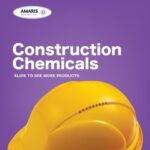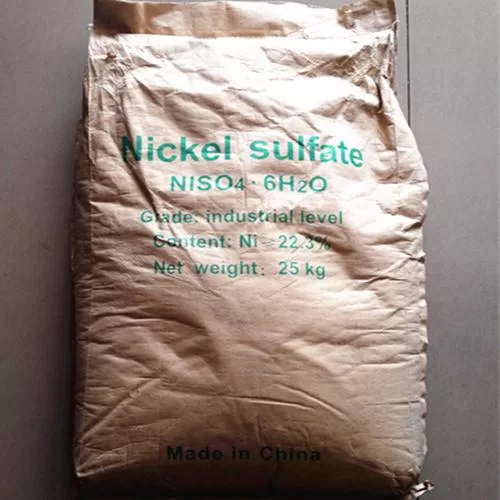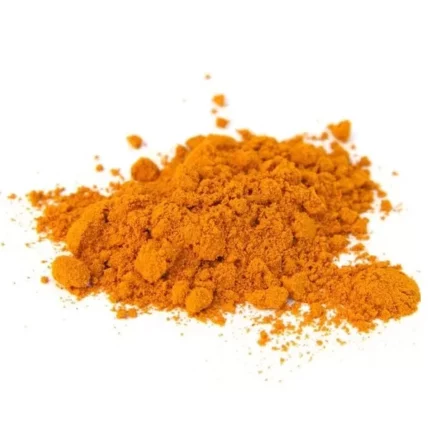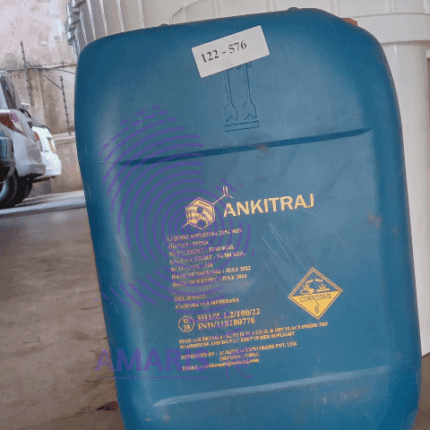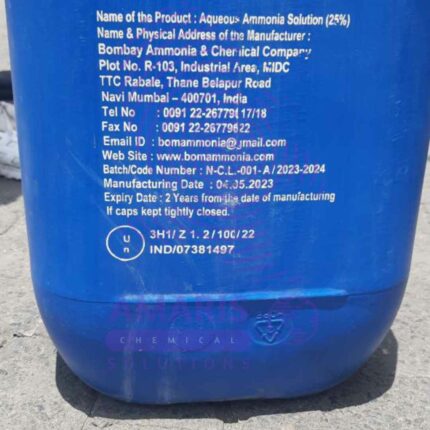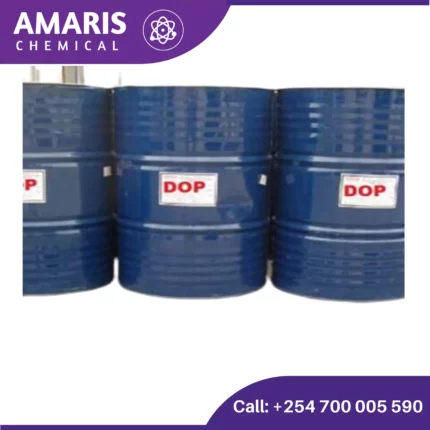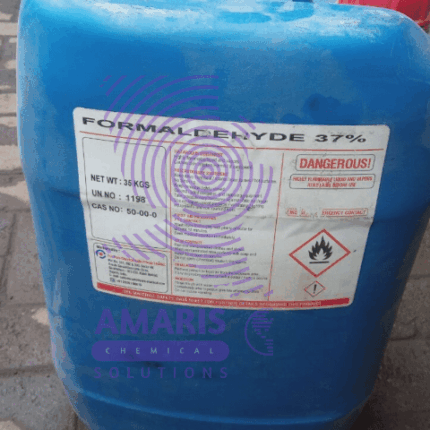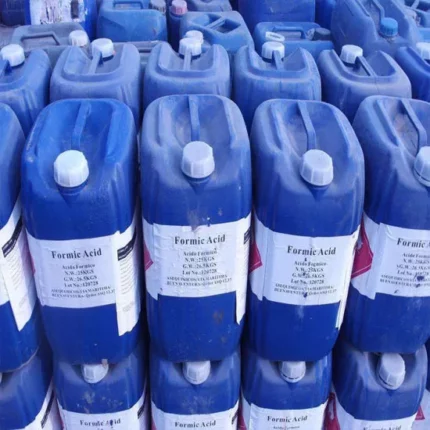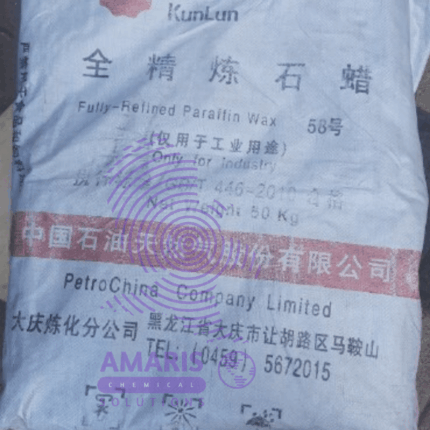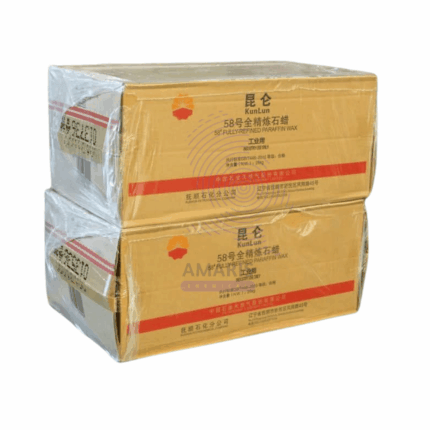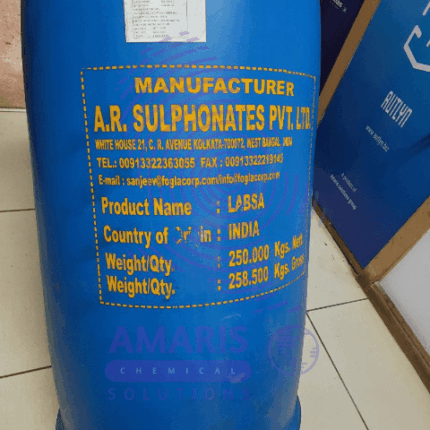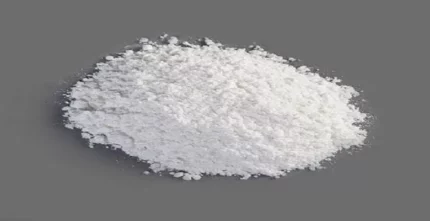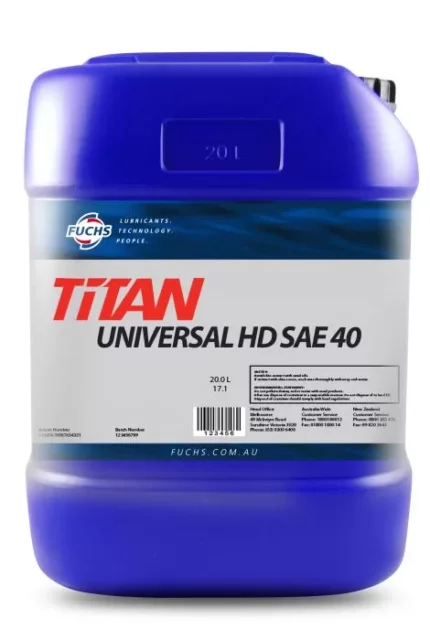Back to products
![Powder Sodium Mono Fluoro Phosphate [Na2PO3F]](https://amarischemicalsolutions.com/wp-content/uploads/2025/05/Powder-Sodium-Mono-Fluoro-Phosphate-amaris-chemical-solutions-jpg-430x430.webp)
![Powder Sodium Mono Fluoro Phosphate [Na2PO3F]](https://amarischemicalsolutions.com/wp-content/uploads/2025/05/Powder-Sodium-Mono-Fluoro-Phosphate-amaris-chemical-solutions-jpg-430x430.webp)
Powder Sodium Mono Fluoro Phosphate [Na2PO3F]
$6,700.00 Original price was: $6,700.00.$6,500.00Current price is: $6,500.00.
Nickel Sulphate [NiSO4(H2O)6]
$6,500.00 Original price was: $6,500.00.$6,400.00Current price is: $6,400.00.
Whatsapp Order
Nickel sulfate, also known as nickel(II) sulfate or just nickel sulfate, is a chemical compound with the formula NiSO₄. It is a crystalline solid that is highly soluble in water. Here are some key points about nickel sulfate:
- Chemical Formula: NiSO₄
- Appearance: Nickel sulfate usually appears as a green or blue crystalline solid, depending on its hydration state.
- Hydrates: It forms several hydrates, the most common being the hexahydrate (NiSO₄·6H₂O), which is blue in color.
- Solubility: It is highly soluble in water, which makes it easy to dissolve in aqueous solutions.
- Applications:
- Electroplating: Nickel sulfate is commonly used in electroplating to apply a layer of nickel onto metals.
- Catalysis: It serves as a catalyst in certain chemical reactions.
- Ink Manufacturing: It is used in the production of ink.
- Battery Manufacturing: Nickel sulfate is used in the production of rechargeable batteries, particularly nickel-cadmium batteries.
- Agriculture: It is sometimes used as a micronutrient in fertilizers for crops.
- Hazards: Nickel sulfate is toxic if ingested or inhaled in large amounts. Prolonged exposure can cause skin allergies or respiratory issues in sensitive individuals.
SKU:
ACS86872CHEM0
Category: OTHERS
Description
Nickel Sulphate
- Electroplating: One of the most significant uses of nickel sulfate is in electroplating. It is commonly used to electroplate nickel onto metal surfaces, providing corrosion resistance, improved wear resistance, and aesthetic appeal. Nickel-plated items include automotive parts, household goods, and industrial machinery components.
- Battery Manufacturing: Nickel sulfate is essential in the production of rechargeable batteries, particularly nickel-cadmium (Ni-Cd) and nickel-metal hydride (Ni-MH) batteries. It serves as a key component in the formulation of battery electrode materials, contributing to the battery’s performance and longevity.
- Catalysis: Nickel sulfate acts as a catalyst in various chemical reactions, particularly in organic synthesis and hydrogenation processes. It facilitates reactions by lowering activation energy, enhancing reaction rates, and improving selectivity in certain chemical transformations.
- Ink Manufacturing: In the printing industry, nickel sulfate is used in the formulation of specialty inks, such as those used in gravure and flexographic printing processes. These inks often require specific chemical properties and adhesion characteristics that nickel sulfate helps achieve.
- Agricultural Applications: Nickel is an essential micronutrient for plant growth. Nickel sulfate is used in agriculture as a fertilizer additive to address nickel deficiencies in soils, particularly in regions where the natural nickel content is insufficient for optimal crop growth. Nickel plays a crucial role in the metabolism of certain plants, contributing to their overall health and productivity.
Related products
Ammonia solutions 33kg 33%conc
Ammonia solution is a solution of ammonia (NH3) gas dissolved in water. It is a clear, colorless liquid with a pungent odor and a basic pH. The concentration of ammonia in the solution can vary, and is typically expressed in terms of percent by weight or by volume.
Ammonia solutions are commonly used in a variety of applications, including cleaning agents, fertilizers, and as a precursor to other chemicals. They are also used in industrial processes such as refrigeration, gas purification, and water treatment. Ammonia solutions can be dangerous if not handled properly, as they are highly corrosive and can release toxic fumes if mixed with certain chemicals
DOP (Dioctyl Phthalate) 200 kg drum
Dioctyl phthalate (DOP) is a clear, colorless liquid with a slightly fruity odor. It is a commonly used industrial chemical and a type of phthalate ester, which is a plasticizer. DOP is often added to plastics, such as polyvinyl chloride (PVC), to make them more flexible and easier to process. It is also used as a solvent and a lubricant in a variety of industrial and consumer applications. However, due to concerns about its potential health and environmental effects, DOP is being replaced by other plasticizers in many applications.
Formalin (Formaldehyde) 35kg
Formaldehyde is a colorless gas with a pungent odor, which is used as a disinfectant, preservative, and in the production of various materials and chemicals.
Formalin is a solution of formaldehyde gas in water, typically containing 37% formaldehyde by volume. It is commonly used as a tissue preservative in biological specimens for medical and research purposes. Formalin is also used in various industrial applications such as manufacturing plastics, resins, and textiles.
Formic Acid 85% 25 kg Jerrycan
Formic acid is a colorless, pungent liquid with a chemical formula of HCOOH. It is the simplest carboxylic acid, naturally occurring in certain fruits and vegetables and in the venom of some ants. It has a wide range of industrial applications as a preservative, antibacterial agent, solvent, and in the production of textiles, leather, rubber, and other materials. It also has some medical applications and is used in organic chemistry reactions as a reducing agent. However, formic acid is highly corrosive and can be dangerous if ingested or inhaled in large quantities.
Fully Refined Paraffin Wax 50 kg
Fully refined paraffin wax is a type of wax that has undergone a refining process to remove impurities and unwanted components. It is a white, odorless, and tasteless wax that is solid at room temperature and has a relatively low melting point.
The refining process involves several steps, including solvent extraction, deoiling, and bleaching. Solvent extraction involves dissolving the crude wax in a solvent, which separates the wax from other components such as oil and grease. Deoiling involves removing any remaining oil and grease from the wax through vacuum distillation. Bleaching involves removing any remaining color or odor from the wax through the use of chemical agents.
Fully refined paraffin wax is commonly used in a variety of applications, including candle making, coating materials, packaging, and cosmetics. Its properties, such as its low melting point and ability to retain fragrance and color, make it a popular choice in these industries
Labsa (Ufacid) 90% 250 kg Drum
LABSA stands for Linear Alkyl Benzene Sulfonic Acid, which is an anionic surfactant commonly used in the production of detergents and other cleaning products. It is produced by sulfonating linear alkyl benzene (LAB), which is derived from crude oil or kerosene. LABSA is a brown viscous liquid with a strong odor and is highly soluble in water. It is a versatile surfactant that has excellent foaming and cleaning properties and is widely used in various industries, including household cleaning, personal care, and textile processing.


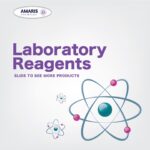
 LABORATORY EQUIPMENT & APPARATUS
LABORATORY EQUIPMENT & APPARATUS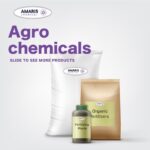
 Fertilizers
Fertilizers Plant Growth Regulators
Plant Growth Regulators Soil Conditioners
Soil Conditioners Animal Feed Additives
Animal Feed Additives Biostimulants
Biostimulants Dough Conditioners
Dough Conditioners Flour Treatments
Flour Treatments Fat Replacers
Fat Replacers Preservatives (baking)
Preservatives (baking)
 Surfactants (cleaning)
Surfactants (cleaning) Builders
Builders Bleaching Agents
Bleaching Agents Enzymes
Enzymes Solvents (cleaning)
Solvents (cleaning) Fragrances
Fragrances